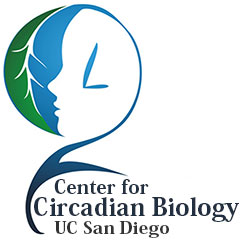2016 News
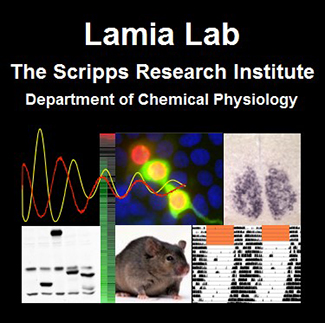 Nov 16, 2016
Nov 16, 2016
How disruption of circadian rhythm contributes to enhance cancer susceptibility
CCB’s Katja Lamia and colleagues from TSRI report a novel function for the clock component CRY2 in regulating the stability of the proto-oncogene c-MYC, establishing a new connection between circadian clock and cancer.
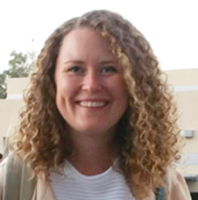 November 2016
November 2016
CCB applauds 2016 Fall Workshop trainee speaker award
Alicia Michael received best presentation talk entitled "Molecular clockwork: integrative approaches unveil the first picture of a critical circadian transcriptional repressive complex." The award is a career-boosting invited speaker slot at our 2017 CCB symposium.
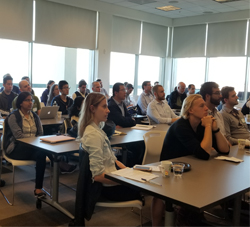 Nov 10, 2016
Nov 10, 2016
CCB Fall Workshop on Biological Timing
Another outstanding meeting, as more than 70 participants enjoyed the 10 guest speakers at the 2016 Fall Workshop on Biological Timing.
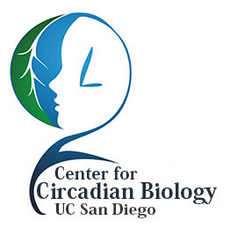 September 2016
September 2016
CCB name change to Center for Circadian Biology
Formerly known as the Center for Chronobiology, our center has a new name, Center for Circadian Biology. Many people were uncertain of the meaning of "chronobiology," but were much more familiar with "circadian rhythms.”
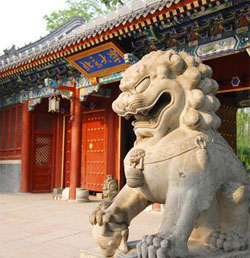 Aug 1-6, 2016
Aug 1-6, 2016
International Chronobiology Summer School - Beijing
The Chinese Society for Biological Rhythms (CSBR) and Peking University are hosting an international chronobiology summer school in Beijing, China, August 1-6, 2016.
 August 2016
August 2016
Steve Kay to lead USC Michelson Center for Convergent Bioscience
The USC Michelson Center will bring together interdisciplinary teams of researchers from across the university to advance our understanding of human health and accelerate the development of new life-saving biomedical devices and therapeutics.
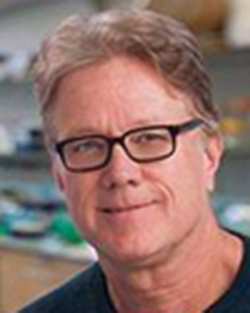 August 2016
August 2016
Hasty lab engineers bacteria for cyclic delivery of cargo
In a Nature paper "Synchronized cycles of bacterial lysis for in vivo delivery,” Jeff Hasty, Lev Tsimring, and colleagues demonstrate that clinically relevant bacteria can be engineered to lyse synchronously at a threshold population density, releasing genetically encoded cargo for improved delivery of therapeutics.
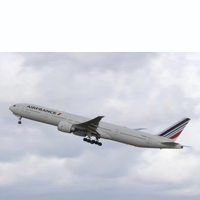 Jul 15, 2016
Jul 15, 2016
Why it is easier to fly west
The New York Times, Jet lag may be the worst part of traveling, it hits many people harder traveling east than west. Depending if you're a lark - an early riser - or an owl, and "most people are owlish," said David Welsh, a neuroscientist at the UC San Diego, who studies the body's pacemaker cells.
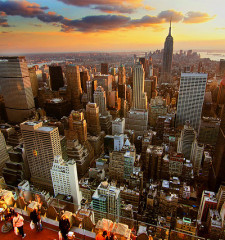 Jun 29 - Jul 1, 2016
Jun 29 - Jul 1, 2016
SLTBR 28th Annual Meeting
The 2016 annual meeting of the Society for Light Treatment and Biological Rhythms (SLTBR) will be held at the New York State Psychiatric Institute, New York City.
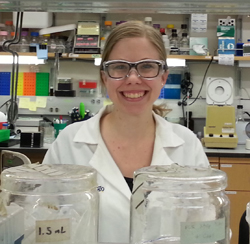 Sumer 2016
Sumer 2016
Briana McKnight (CCB Undergraduate student) awarded national fellowship
Briana McKnight, undergraduate student, UCSD, awarded a prestigious fellowship from the American Society for Microbiology to support her research on the subcellular localization of circadian clock protein KaiC in cyanobacteria. Briana will present her work at the ASM meeting in New Orleans.
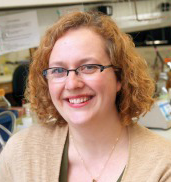 May 27, 2016
May 27, 2016
Carrie Partch receives Junior Faculty Research Award
Dr. Partch, assistant professor, chemistry and biochemistry, UC Santa Cruz and CCB affiliate, was honored with a Junior Faculty Research Award at the 2016 meeting of the SRBR. Recognized for her outstanding pre-tenure faculty, independent contributions to the field of chronobiology.
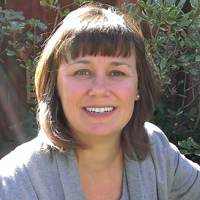 May 2016
May 2016
Lifestyle changes for better health
Science says diet and exercise are keys to a healthy life. But Dr. Dorothy Sears, as a guest of the Howell Foundation, offered two ways to adjust diet and exercise habits for long-lasting improvements to well-being. It’s not what you eat, but when you eat it; and sit less.
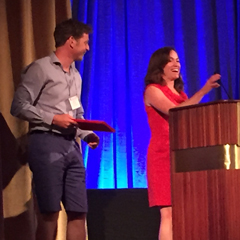 May 2016
May 2016
Aschoff's Rule returns to CCB!
CCB Executive Committee member Katja Lamia was awarded the coveted Aschoff’s Rule at the 2016 SRBR meeting. Katja was selected for this peer-to-peer honor by Andrew Millar of the University of Edinburgh, who received it in 2015 from the 2014 recipient, CCB Director Susan Golden.
 May 2016
May 2016
Inaugural Symposium of the UC San Diego Center for Healthy Aging
The UC San Diego Center for Healthy Aging invites UC San Diego faculty and staff to attend its Inaugural Symposium on May 26th from 12:30-6:00 PM at Atkinson Hall Auditorium (Calit2).
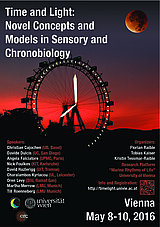 May 8-10, 2016
May 8-10, 2016
Symposium on Time and Light: Novel Concepts and Models in Sensory and Chronobiology in Vienna
This two-day symposium will bring together scientists and students from across the world aiming to present and discuss forefront research and future perspectives on the impact of light on organisms and chronobiology.
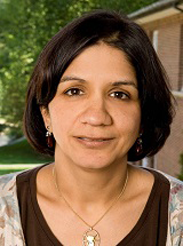 May 3, 2016
May 3, 2016
Amita Sehgal elected to NAS
CCB congratulates circadian colleague Amita Sehgal on election to the National Academy of Sciences! Dr. Sehgal is a molecular biologist and chronobiologist, in Neuroscience, Perelman School of Medicine, University of Pennsylvania.
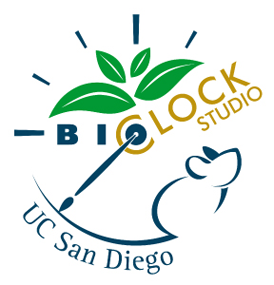 May 2016
May 2016
Re-launch of the BioClock Studio YouTube channel
The BioClock Studio has re-launched its YouTube channel.
Stay tuned for new content!
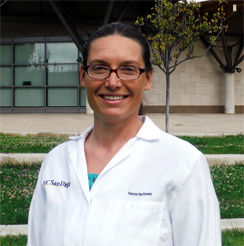 April 2016
April 2016
CCB Trainee earns K99/R00 award
Congratulations to Hanne M Hoffmann, a CCB postdoctoral trainee, who was awarded the K99/R00 Pathway to Independence award from NICHD to study the link between SCN development and function in adulthood in relation to fertility.
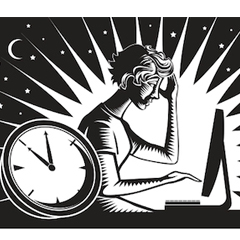 March 2016
March 2016
NTP Workshop: Light at night
National Toxicology Program presents a workshop on Artificial Light at Night, Shift Work at Night, and Circadian Disruption. Interruptions in light-dark cycles due use of electronic devices at night, working at night, and light pollution. NIEHS, Research Triangle Park, NC, March 10-11, 2016.
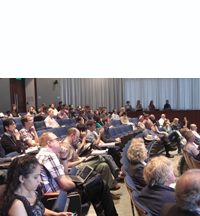 Feb 24-26, 2016
Feb 24-26, 2016
CCB 7th Center for Circadian Biology Symposium
Another successful symposium with 160 attendees and 18 featured speakers. Sponsors:Vanda, Merck, UCSD BioClock Studio, HHMI, Owaves, Janssen, Lumie, Nature Bright, BioTek, Thermo Fisher-Brunnel, and UCSD Biological Sciences.
